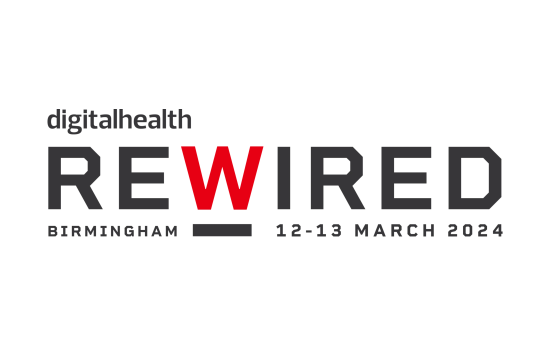 12 - 13 March 2024, Birmingham, UK.
12 - 13 March 2024, Birmingham, UK.Digital Health has published the draft programme for the big five stages at Rewired24, the UK's biggest and best health IT and digital health event.
Each of the five main stages run across the two-days of Rewired24 which will run at the NEC Birmingham, packed with original keynotes, inspiring NHS case studies, panel sessions and lively Rewired debates.
Jon Hoeksma, CEO of Digital Health, said "The Rewired24 programme reflects the incredibly diverse range of digital health initiatives across all parts of the health service. We've worked with our audience and partners to curate a really compelling programme, over 300 speaker suggestions coming in through the open call alone."
Hoeksma added: "Rewired24 is for everyone with any interest at all in how digital and data can help the NHS and wider health sector better deal with the immediate pressures of today and meet the coming challenges that lie ahead."
The first of the main stages is Digital Transformation, where sessions will examine large scale digital transformation initiatives, including Apollo in London, virtual wards and integrating health and care across Northern Ireland.
Digital Transformation speakers include:
- Dr Vin Diwaker, director of digital transformation, NHS England
- Matthew Taylor, CEO NHS Confederation
- Prof Ian Abbs, CEO Guy’s and St Thomas’ NHS FT
- Helen Thomas, CEO Digital Health and Care Wales
- Dr Amanda Begley, Executive Director of digital transformation, Health Innovation Network
The second main stage is Integrated Care, with sessions on shared records, digital inclusion, user-led design, convergence, and social care.
Integrated Care speakers include:
- Paul Farmer, CEO Age UK
- Bishoy Dimitri, CCIO, Oxford University Hospitals NHS FT
- Laura Godtschalk, Leicester, Leicestershire and Rutland care records programme manager
- Hannah Wall, stakeholder relationship senior manager, Connecting Care Records, NHSE
- Joe McGuigan, ICB Director of digital operations and assurance, NHS Lancashire and South Cumbria ICB
New for 2024 is Leadership and Teams, where sessions will explore the challenges of leading, building and sustaining digital teams in a health service under intense pressure.
Leadership and Teams speakers include:
- John Quinn, Chief Information Officer, NHS England
- Sir Julian Hartley. CEO NHS Providers
- Dr Ana Prado, CCIO, Lusiadas Saude Health group and CMIO, Cascais Hospital, Portugal
- Prof Jane Eddleston, Joint Group Medical Director, Manchester University NHS FT
- Tim Corbett, CEO, Health Informatics New Zealand
On the AI, Analytics and Data, sessions will explore case studies on AI and Analytics use in the NHS, and key topics in data for research, as well as featuring inspiring AI start-up founders.
AI, Analytics and Data speakers include:
- Ming Tang, chief data and analytics Officer for NHS England
- Dr Jess Morley, research fellow Yale Digital Ethics Centre.
- Dr Nadine Hachach-Haram, Founder & CEO, Proximie
- Marko Balabanovic, chief technology officer, Our Future Health
- Prof Krish Nirantharakumar, Professor of Health Data Science and Public Health, University of Birmingham
The last of the big five Rewired stages is Digital Nursing, Midwifery, AHPs and Pharmacy, which on day one will focus on digital nursing and midwifery and day two on AHP and Pharmacy.
Digital Nursing, Midwifery, AHPs and Pharmacy speakers include:
- Prof Greta Westwood, Chief Executive Officer, Florence Nightingale Foundation
- Dr Crystal Oldman, Chief Executive, The Queen's Nursing Institute
- Simon Noel, CNIO Oxford University Hospitals and Chair CNIO Network
Further speaker derails will be added to each of the tracks on a weekly basis with the full programme to be published early in the New Year, including details of the one-day Rewired tracks on Innovation, Smart Health, Cyber Security and Patient Engagement.
A guiding principle of the Rewired24 programme is to ensure greater diversity of gender, ethnicity and experience across the programme, with a focus on giving new speakers an opportunity to participate.
Hoeksma concluded: "I'd like to personally thank everyone who has worked with us to make the Rewired24 programme so varied, inclusive, spanning so many aspects of digital health and care, and look forward to what is shaping up to be the best Rewired yet."
Book your place today at Digital Health Rewired. The CPD-accredited conference is free for NHS and public sector. Private sector tickets start from £475 +VAT.
For further information and to register, please visit:
https://digitalhealthrewired.com